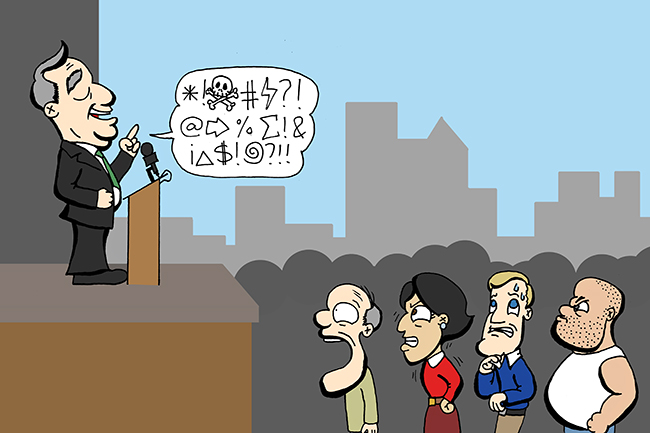The last few months have birthed a startling campaign against empathy in online spaces and media, rooted in the movement against political correctness and the so-called “coddling” of college classes across the country through the use of trigger warnings. From simple text posts on social media websites such as Reddit to front-page articles on news giants like The Atlantic, the idea of trigger warnings is being attacked from all ends.
A trigger warning is a warning given to students that a certain assignment or lecture could be a trigger to someone suffering from psychological trauma. This allows any such person to simply not attend the lecture containing the triggering material.
UT English lecturer Sarah Orem, co-author of a forthcoming article about trigger warnings on campus in the web journal Enculturation, notes that even though trigger warnings might not always help students with trauma issues, they can significantly reduce the burden that a student with post-traumatic stress disorder might be coping with.
“Living through trauma, coping with PTSD, dealing with severe mental illness on a daily basis — these are all incredibly different tasks,” Orem said in an email. “It takes stamina and resilience to earn a college degree while dealing with a chronic illness.”
Improved mental health resources are the long-term solution for students with PTSD or other mental illnesses, but unfortunately, University facilities for mental health are currently underfunded.
College already offers more than its share of mental and financial burdens on students, and these issues only compound themselves in the case of mental illness. Why should we make students with PTSD, who are already at a higher risk of suicide, have to experience psychological trauma just to avoid this unthinkable concept of “coddling?”
Kristen Woodruff of USC’s student newspaper The Daily Trojan argues that trigger warnings are a basic protection of a student’s well-being, since “getting through curriculum without psychological trauma should be as integral to a quality college experience as being able to walk home safely at night.”
Empathy is the key word here. Trigger warnings have low costs and are very easy to implement — Orem sends a simple, anonymous Google form to students to see what kinds of subjects might be triggering to them — and they bring tangible benefits in the absence of adequate mental health resources. The needs of the vulnerable outweigh the needs of the privileged.
Ashvin Govil is a computer science freshman. Follow him on Twitter @Ashvio.





















